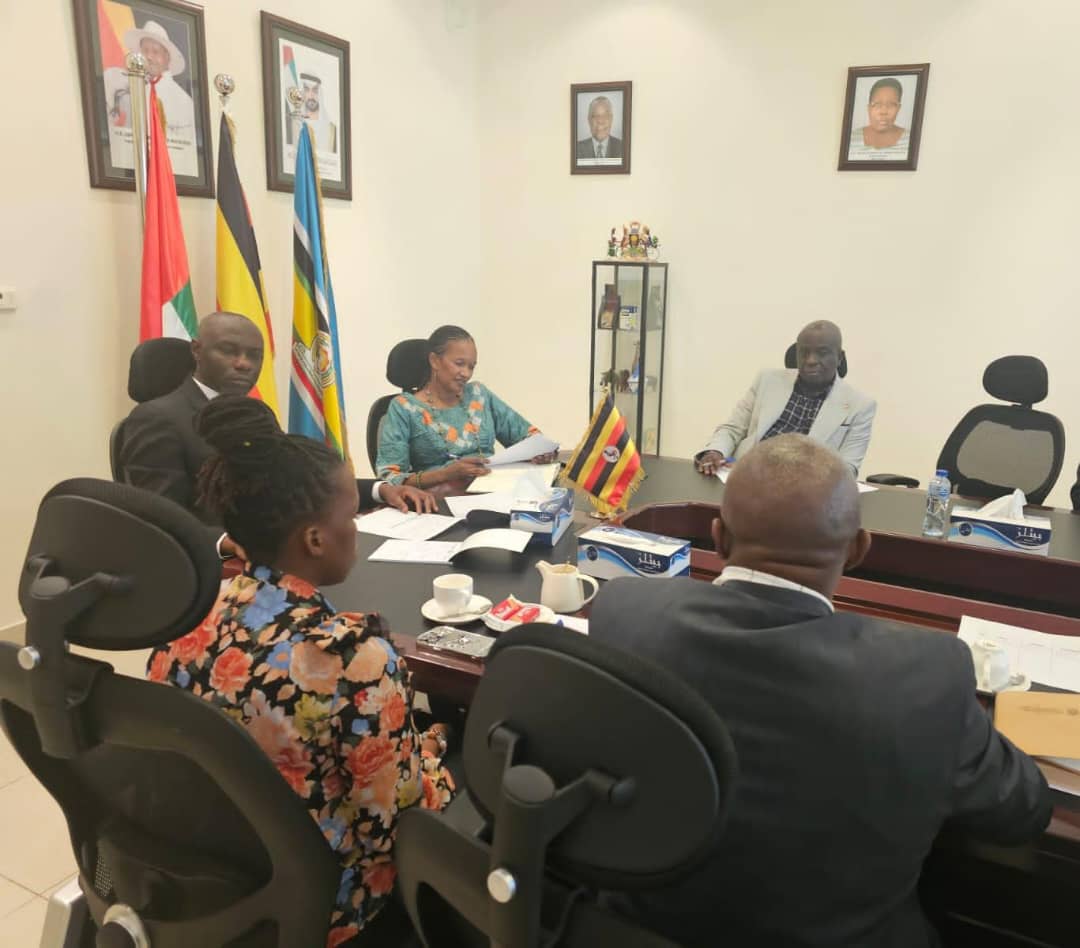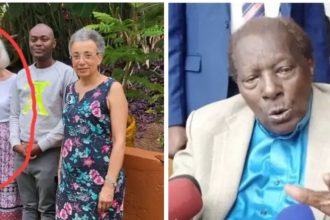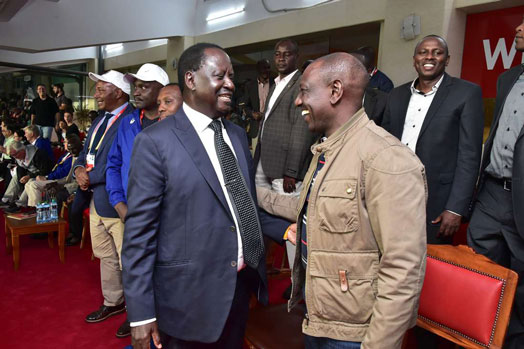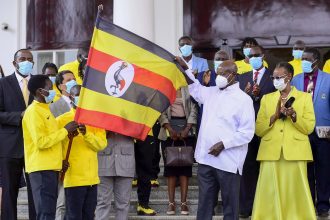Statistics show that in 2016, there were only 10,400 Ugandans working in the UAE, but this number has recently grown to 150,000, with the majority being unskilled workers.
In a move to ensure more efficient labour migration governance between Uganda and the UAE, officials from both countries, Mlinzi Training and Deployment, and members of the Ugandan community assessed the progress of ongoing labour migration initiatives, challenges encountered, and strategies to ensure a more transparent labour migration system.
In her remarks, the State Minister for Labour, Employment, and Industrial Relations, Hon. Esther Davinia Anyakun, acknowledged that Uganda has made notable strides in streamlining the externalization of labour.
However, she urged stakeholders to unite, as more must be done to ensure migrant workers receive better working conditions and protection. She also highlighted the government’s efforts to scout for job opportunities for skilled Ugandan workers.
Anyakun thanked Ambassador Zaake and his embassy staff for their extraordinary service delivery. She praised their open-door policy and their commitment to acting in the best interest of Uganda while fulfilling their duties abroad. Specifically, she acknowledged Mr. Okedi Ismael, Chairperson of the Uganda Community in the UAE, for his zeal and dedication. She noted that although his role is voluntary, he approaches it with the passion of someone who truly believes in “serving the community like a chef whipping up a feast—always generous and ready to serve!”
“The Ugandan community here in the UAE is indeed remarkable,” she said, pledging to share their concerns, needs, and contributions toward the development of Uganda. She was particularly impressed by the community’s enthusiasm for accessing the volunteer National Social Security Fund (NSSF) and the Parish Development Model (PDM), as well as other development opportunities. Additionally, Anyakun applauded the excitement among community members about returning to Uganda to participate in voting for the 2026 elections.
Uganda’s Ambassador to the UAE, Kibedi Zaake, expressed his gratitude to the State Minister for her dedication to providing services to Ugandan citizens working abroad. He remarked that she is not just sitting behind a desk; she is actively engaging with communities, rolling up her sleeves, and bringing essential services to the people.
In the same breath, he commended Ambassador Abbey Walusimbi for being a passionate advocate for Uganda, always keeping the country’s interests at heart. He emphasized that this initiative to combat human trafficking and advocate for better-skilled job opportunities for the diaspora community is exactly what has been needed, and it comes at a crucial time.
On his part, the Senior Presidential Advisor on Diaspora Affairs, Ambassador Abbey Walusimbi, stressed that empowering the Ugandan Diaspora is not just a responsibility but a profound commitment to building a brighter future for the nation. “The Office of the President of the Republic of Uganda, under the visionary leadership of President Yoweri Kaguta Museveni, stands firmly alongside us in this endeavor, ready to support and uplift every Ugandan living abroad.”
To the leadership of the Ugandan community in the UAE, Walusimbi commended their tremendous work of service. “I understand the dedication it takes because I started as a volunteer community leader in the Ugandan community in Los Angeles, California, and also as a Leader of the United African Federation for 26 years. Through hard work and perseverance, the President recognized my contributions and uplifted me to the role of Senior Advisor and Ambassador.”
Walusimbi encouraged the community leadership to work diligently and passionately, knowing that their efforts are valued and that the country is behind them. “Together, we will combat injustices, create skilled job opportunities, and ensure that each Ugandan has the chance to thrive and contribute to the development of our beloved Uganda. It is through unity and collaboration that we can harness the talents of our Diaspora and drive meaningful change for our communities both at home and abroad.”
Ultimately, participants agreed that international labour standards are evolving, and future deliberations should focus not only on uplifting the rights of migrant workers but also on ensuring they have access to social protection, healthcare, financial literacy, and other key services.




















